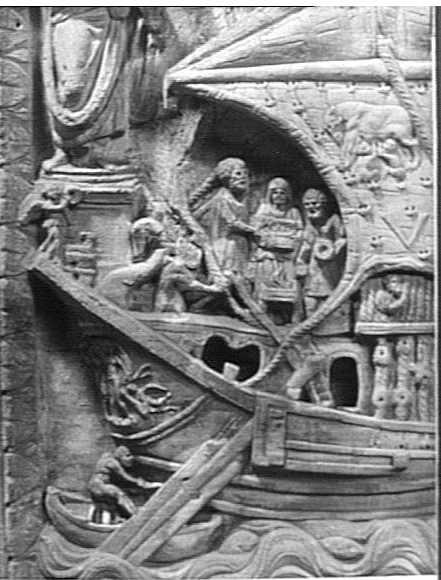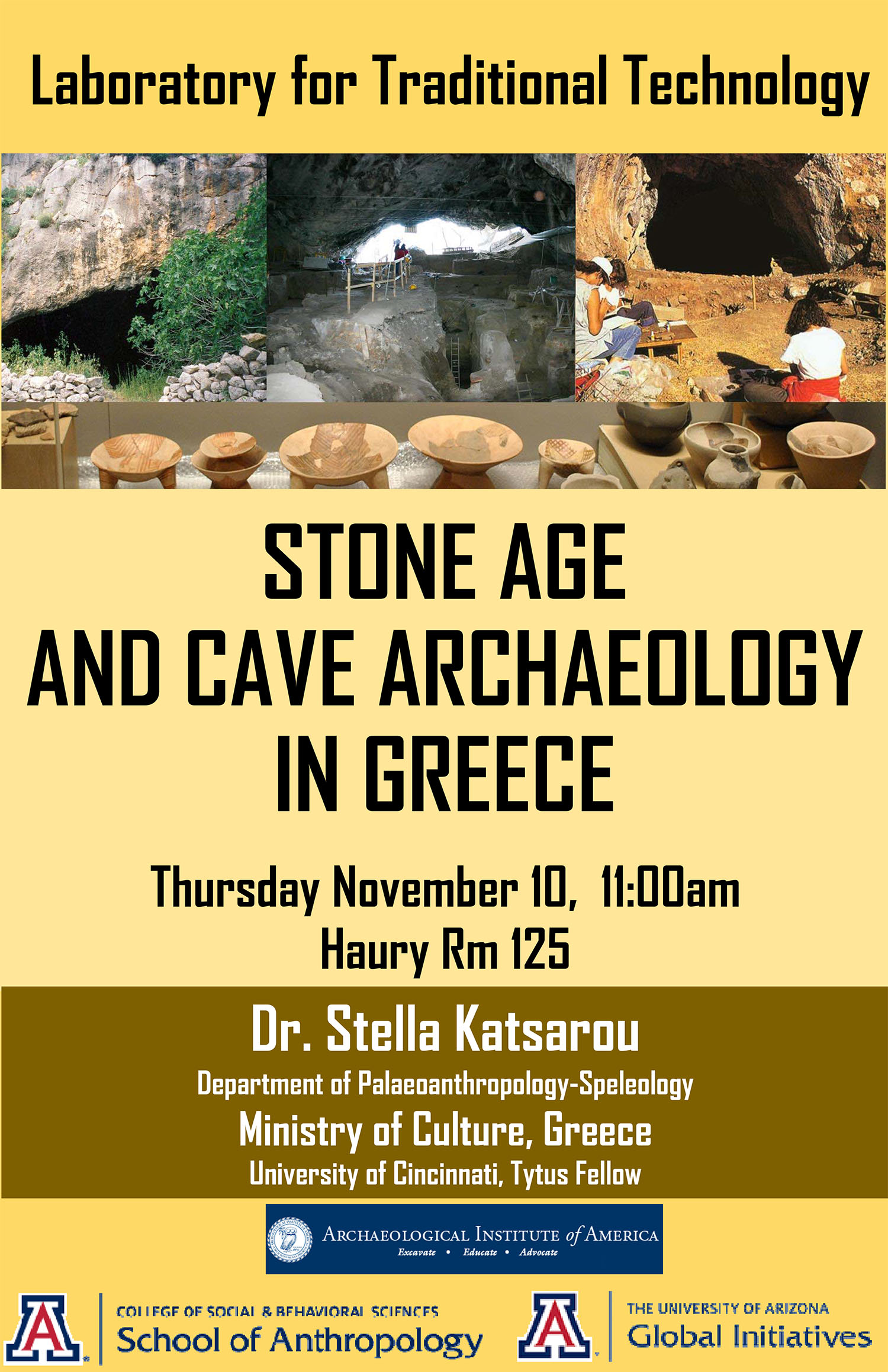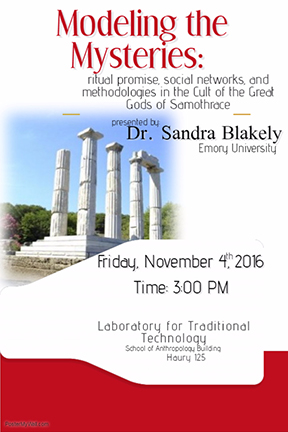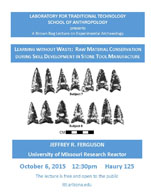 |
Like frogs around a pond: Reconstructing the Rituals of Ancient Greek Maritime Religion Dr. Amelia Brown, University of Queensland May 1, 2017 12:00-1:00pm
Abstract: The ancient Greeks took part in a common religious culture all around the Mediterranean sea, ‘like frogs around a pond’ (Plato Phaedo 109b). The rituals and technologies of maritime culture were central to this Panhellenic religion, especially everyday rituals practiced at harbors and aboard ships for safe arrival ashore. I argue that the religious system of sailors helped the ancient Greeks in unexpected ways to establish, develop and spread their common culture, especially in the Hellenistic era. Cults of seafaring gods like Aphrodite, Apollo, Hera, Poseidon and the Dioscuri were carried from port to port around ancient Greece, to the Greek colonies, and into foreign cities intertwined with technologies for launching, navigating and anchoring ships safely. Chief among the latter were lead anchor stocks, some with names of gods or 4 astragaloi, knucklebones used as dice. Each bone is shown with a different face up, forming a throw sacred to the goddess Aphrodite-Venus, good luck, especially at sea, which would have been enacted and replicated whenever ancient sailors cast this anchor overboard. These artefacts connect us with ancient makers, who cast the dice upon the stock, and users, who threw it overboard and hauled it back in. Bringing this evidence back together reveals a durable yet flexible network of maritime rituals and technological practices which bound the ancient Greeks together in unexpected and close-knit ways, even across great distances. |
 |
Stone Age and Cave Archaeology in Greece Dr. Stella Katsarou, Department of Palaeoanthropology-Speleology Ministry of Culture, Greece November 10, 2016 11:00am Abstract: The Greek Stone Age has been an active field of research, very much favored by the archaeology of caves. This presentation will demonstrate the wide research potential of cave contexts for the Greek prehistoric record, as emerging from their character as multi-temporal and multi-functional sites where subsequent time periods and cultures are able to survive in long depositional sequences. Against a rich account of sites and artifacts from older investigations, the presentation will show the latest discoveries on the use of caves by hunter-gatherers and early farmers of the Greek mainland and the Aegean. Major focus will be placed on fresh insights into the social, ritual and mortuary behavior of the Stone Age communities and implications for complex worldviews on cave symbolism. Dr. Katsarou’s visit is made possible with a UA Global Initiatives Visiting Scholar Grant |
 |
Modeling the Mysteries: Ritual Promise, Social Networks, and Methodologies in the Cult of the Great Gods of Samothrace
Dr. Sandra Blakely, Emory University and UIR Residential Scholar November 4, 2016 3:00pm
Abstract: The mystery cult of the Great Gods of Samothrace rivaled Eleusis in wealth, reputation and longevity. Its promise to its initiates, safety in travel at sea, was as well known as the contents of the rites were secret. This project pursues the hypothesis that the promise worked, using literary, epigraphic, and geospatial data to model the human social networks created and authorized by the rites and their gods. These networks enabled the information flows on which maritime safety relied, built cooperation among scattered poleis to reduce costs and risks, and created contracts which reduced seizure and the mechanisms of piracy. The project highlights the potential as well as the challenges of integrating textual and material evidence and philological and anthropological approaches to the ancient world.
|
 |
Learning without Waste: Experimental Tests of Raw Material Conservation during Skill Development in Stone Tool Manufacture Dr. Jeffrey Ferguson Archaeometry Laboratory at MURR, University of Missouri October 6, 2015 12:30pm Dr. Jeffrey Ferguson (Archaeometry Laboratory at MURR, University of Missouri) will be giving a brown bag lecture entitled “Learning without Waste: Experimental Tests of Raw Material Conservation during Skill Development in Stone tool Manufacture.”
|
 |
Mechanical and Thermal Properties of Archaeological Ceramics April 22, 2015 2:00pm Dr. Vassilis Kilikoglou Greek National Science Institute "Demokritos", Greece
Assigned readings can be found here. |
